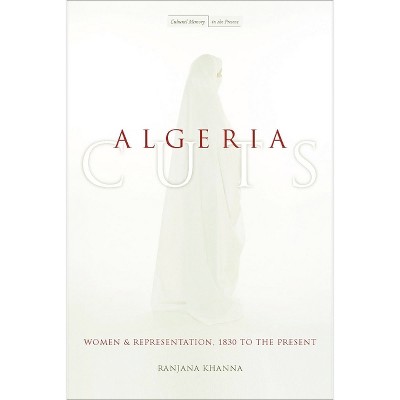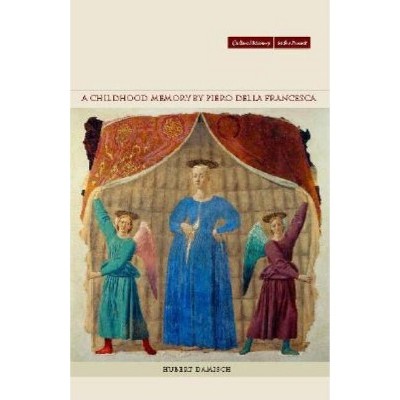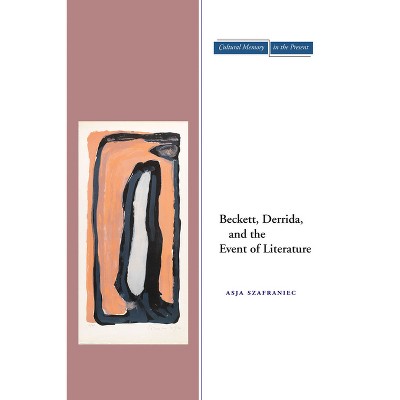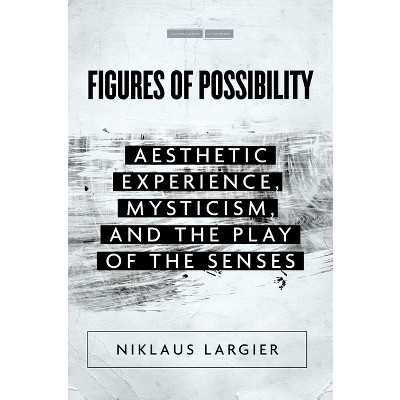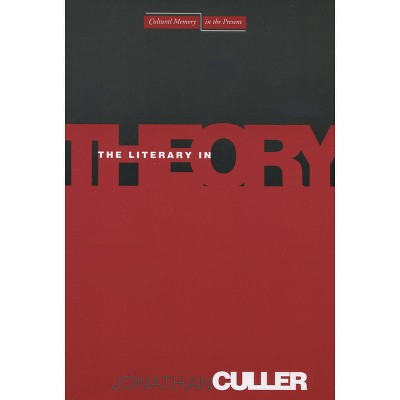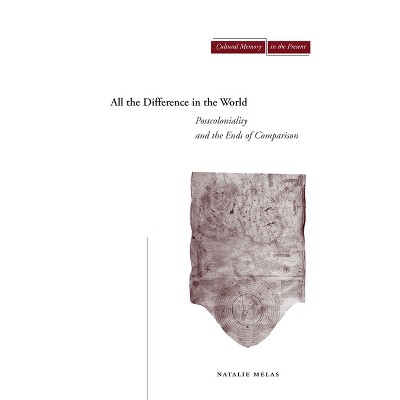Can These Bones Live? - (Cultural Memory in the Present) by Bella Brodzki

About this item
Highlights
- Can These Bones Live?
- About the Author: Bella Brodzki is Professor of Comparative Literature at Sarah Lawrence College.
- 272 Pages
- Literary Criticism, Semiotics & Theory
- Series Name: Cultural Memory in the Present
Description
About the Book
Fundamentally concerned with the means by which translation ensures the afterlife of literary and cultural texts, this book examines multiple processes of translation, temporal and spatial, through acts of intercultural exchange and intergenerational transmission.Book Synopsis
Can These Bones Live? views translation as a mode of literary invigoration--indeed, as a process at the core of all important cultural transactions--rather than a mere utilitarian means of converting the terms of one language into another. Brodzki considers a wide array of canonical and lesser-known fictional and autobiographical works by authors from North America, Europe, and Africa--including Philip Roth, Italo Calvino, Jorge Semprun, and Buchi Emecheta--that foreground translation as narrative theme, figurative device, and textual strategy. The book emphasizes translation's critical role in literary history by examining depictions of the translator figure in contemporary literature and by showing that reading slave narratives through the prism of intercultural translation expands and enriches our understanding of both slavery and genre. At its center, the book argues for translation's crucial role in processes of intergenerational transmission. By linking such processes particularly to mourning and memorialization in texts shaped by the experience of catastrophe, Brodzki demonstrates how translation ensures the afterlife of individual texts and cultural narratives across time and space.
From the Back Cover
Can These Bones Live? views translation as a process at the core of all important cultural transactions, rather than a mere utilitarian means of converting the terms of one language into another. Brodzki considers a wide array of canonical and lesser-known fictional and autobiographical works by authors from North America, Europe, and Africa--including Italo Calvino, Jorge Semprún, Buchi Emecheta, and Philip Roth--that foreground translation as both narrative theme, figurative device, and textual strategy. The first part of the book examines translation as a mode of literary renewal by focusing on depictions of the translator as a figure in contemporary literature and by showing how the slave narrative genre can be read through the prism of intercultural translation. The second part of the book examines the role of translation in intergenerational transmission. By linking that process to remembrance and mourning in texts shaped by the experience of catastrophe, Brodzki demonstrates how translation ensures the afterlife of individual texts and cultural narratives across time and space.Review Quotes
"Bella Brodzki's compelling and wide-ranging book represents an important contribution to current work on translation theory. With illuminating discussions of creatively chosen examples ranging from slave narratives and postcolonial novels to holocaust survivor stories, Brodzki shows translation to be closely associated with questions of trauma, cultural memory, and survival."--David Damrosch "Columbia University"
"In this pioneering study, translation is a matter of life and death .... In Brodzki's hands, such a broad view of translation proves extremely productive in the service of hermeneutics, applied to a range of American, European, and African text, fictional and autobiographical, whose historical frames coincide with late modernity and post modernity. Her selections are marked by or reverberate with echoes of catastrophic events."--Eva C. Karpinski "Biography."
"This is a book that opens up some new perspectives and lets a breath of fresh air into comparative criticism."--Translation Studies
"Brodzki convincingly argues for the 'subversive and transformative power' of translation. Drawing on Benjamin via Derrida, Can These Bones Live? is a profound study of the problematic relationship between loss and survival, given that texts, cultures, and even memory itself must in one sense cease to exist if they are successfully to undergo the redemptive act of historical or cultural renewal."--In Other Words
About the Author
Bella Brodzki is Professor of Comparative Literature at Sarah Lawrence College. She is the co-editor of Life Lines: Theorizing Women's Autobiography (1988).





